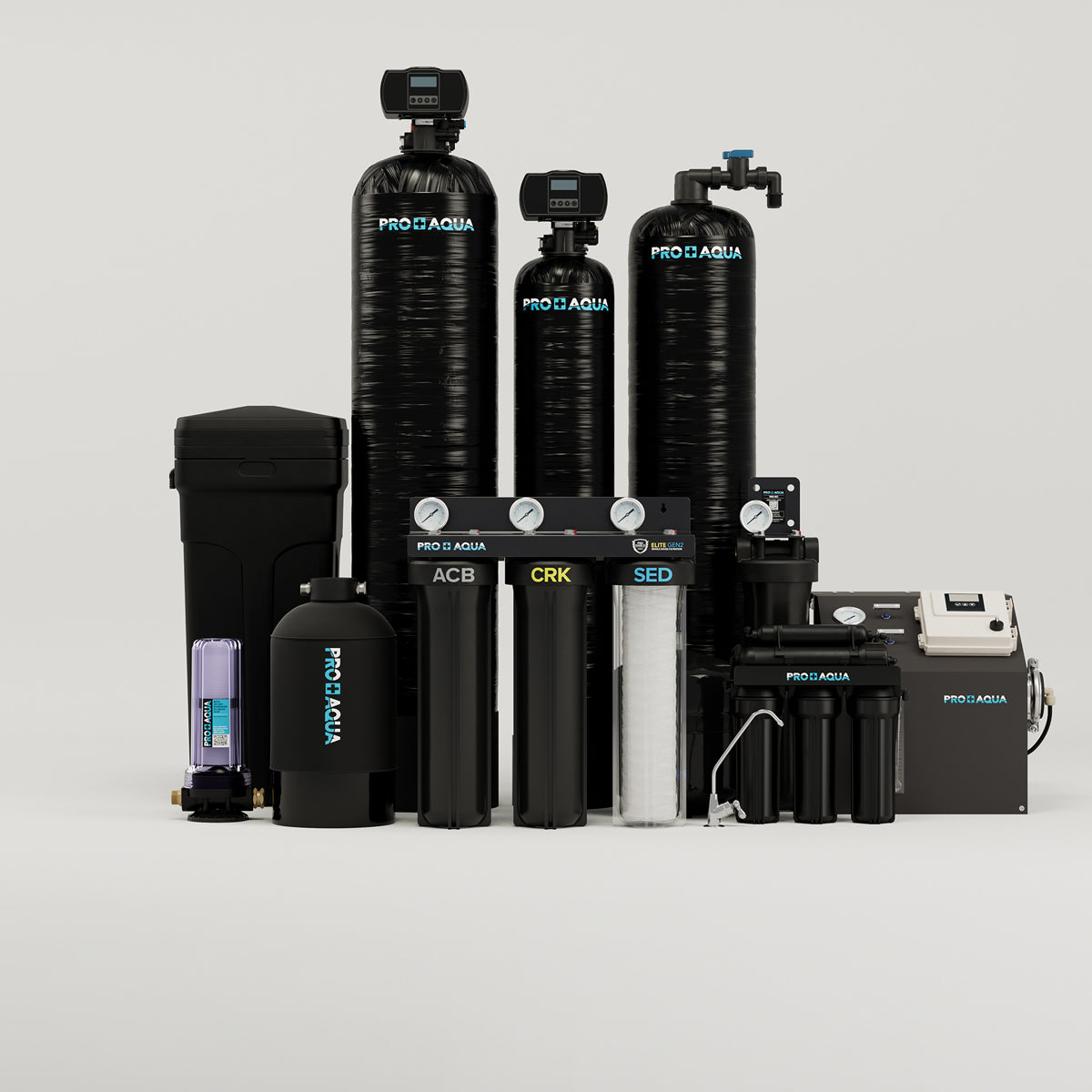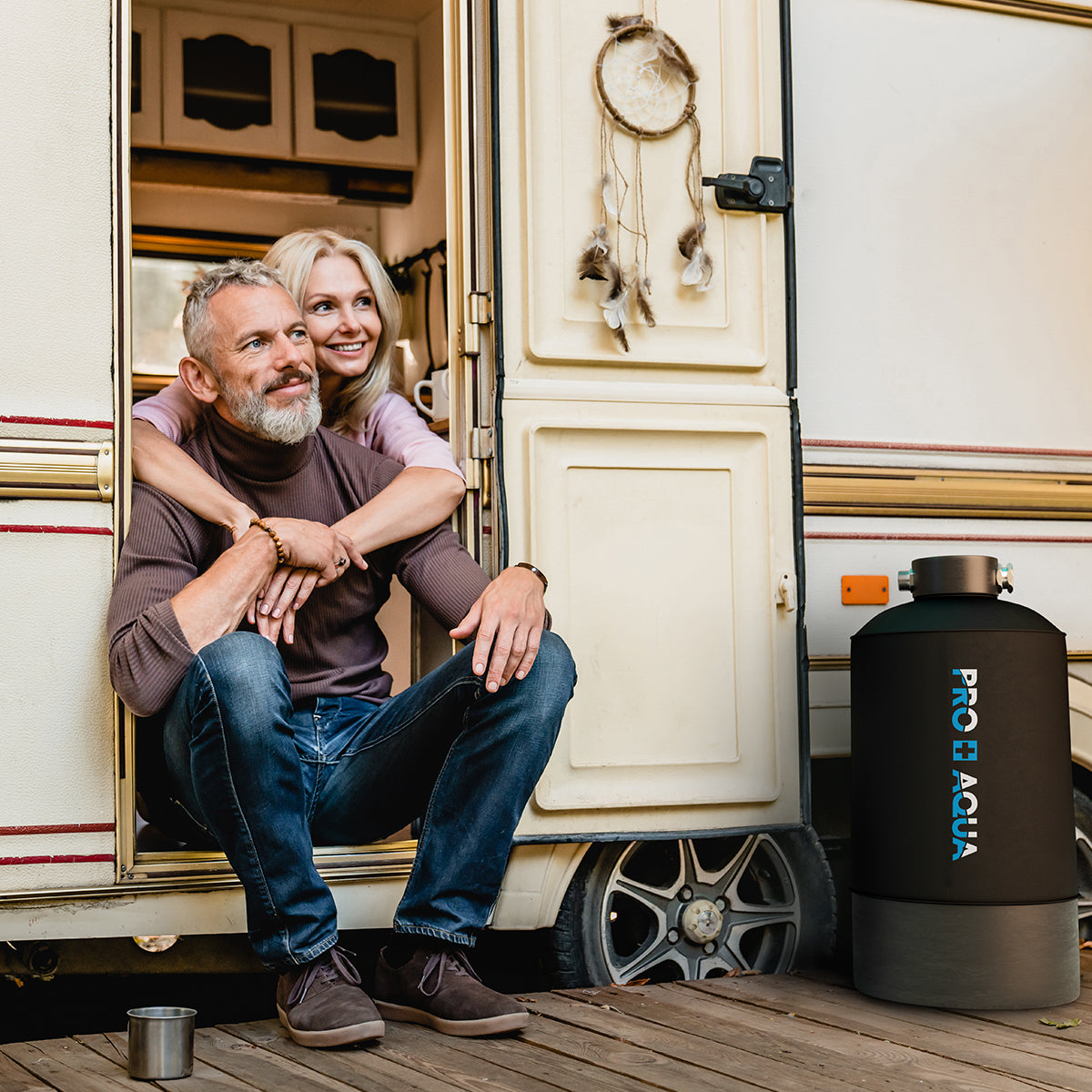For many people, eczema and other skin conditions can be frustrating and difficult to manage. If you live in an area with hard water, you may have noticed your skin feeling dry, itchy, or irritated after showers. This has led to a common question: does hard water cause eczema, and can a water softener help?
Let’s explore the connection between hard water and eczema, what the science says, and whether switching to soft water could bring relief.
Understanding Hard Water
Hard water contains high levels of dissolved minerals, primarily calcium and magnesium. These minerals aren’t harmful to drink, but they can cause problems for your skin and hair.
Some of the ways hard water affects skin include:
-
Soap residue buildup – The minerals react with soap to form a film that’s difficult to rinse off.
-
Dryness – Hard water makes it harder for skin to retain moisture.
-
Reduced cleansing effectiveness – Soaps and shampoos lather less, requiring more product and more scrubbing, which can irritate skin.
Hard Water and Skin Health
Eczema and Hard Water
Research has shown a link between hard water and eczema, particularly in children. In one UK study, children in areas with hard water were more likely to develop atopic eczema than those in soft water areas. The minerals in hard water may weaken the skin’s natural barrier, making it more vulnerable to irritation and allergens.
Hard Water Dermatitis
Dermatitis is an inflammation of the skin, often resulting in redness, swelling, and itching. Hard water dermatitis can occur when mineral buildup on the skin causes prolonged irritation, triggering flare-ups in sensitive individuals.
Skin Irritation and Rashes
Even without eczema, hard water can cause skin irritation. The leftover soap film can trap bacteria and clog pores, leading to a hard water eczema rash or general skin redness. People with sensitive skin may notice more frequent breakouts of dryness, itching, or bumps.

Will Hard Water Cause Eczema?
Hard water itself doesn’t cause eczema in people who are not predisposed to the condition. However, it can trigger flare-ups or make symptoms worse if you already have eczema or dermatitis.
Factors that increase the risk include:
-
Taking frequent or hot showers in hard water
-
Using harsh soaps or body washes that react with minerals
-
Having naturally dry or sensitive skin
-
Pre-existing eczema or other skin conditions
So, while hard water and eczema aren’t a direct cause-and-effect relationship for everyone, there’s a strong correlation for those with sensitive skin.
Does a Water Softener Help With Eczema?
A water softener works by removing calcium and magnesium ions from your water supply, replacing them with sodium or potassium. This process makes the water "soft" and eliminates the mineral buildup that contributes to skin irritation.
Potential Benefits for Eczema-Prone Skin
-
Less soap residue – Soft water rinses away soap more completely, leaving skin cleaner.
-
Improved moisture retention – Without mineral deposits, skin can hold onto its natural oils.
-
Reduced irritation – Softer water is gentler on the skin barrier, which can help minimize flare-ups.
Some eczema sufferers report noticeable improvements in their skin condition after switching to soft water. However, research results are mixed. Some studies show improvement, while others find little to no difference.
Other Tips for Managing Eczema and Dermatitis
Even if you install a water softener, skin care habits are key to managing eczema, dermatitis, and hard water-related rashes:
-
Use gentle, fragrance-free cleansers designed for sensitive skin.
-
Moisturize immediately after bathing to lock in hydration.
-
Limit hot showers — lukewarm water is less drying.
-
Avoid scratching irritated areas to prevent infection.
-
Consider using a shower filter that removes chlorine in addition to softening water.
When to Consider a Water Softener
A water softener may be especially helpful if:
-
A water test shows high mineral content.
-
You or your family members have frequent eczema flare-ups or hard water dermatitis.
-
You notice ongoing skin irritation and dryness despite changing skincare products.

Eczema and Hard Water FAQs
Q: Does hard water cause eczema?
A: Hard water does not directly cause eczema, but it can worsen symptoms in people who are prone to the condition.
Q: Can hard water cause a rash or skin irritation?
A: Yes. Hard water can lead to dryness, itching, and rashes, especially in individuals with sensitive skin.
Q: Does a water softener help with eczema?
A: A water softener removes calcium and magnesium minerals that contribute to dryness and soap buildup. For some eczema sufferers, switching to soft water reduces irritation and flare-ups.
Q: Is hard water bad for dermatitis?
A: Yes, hard water can aggravate dermatitis by making it harder to rinse away soap and by drying out the skin. This can lead to increased itching, redness, and discomfort.
Q: How can I protect my skin if I have hard water?
A: To protect your skin, use gentle cleansers, moisturize immediately after bathing, take shorter lukewarm showers, and consider installing a water softener or shower filter to reduce mineral content.
The Bottom Line
For some, the difference of a softener system can be significant. Softer water may reduce irritation and improve overall skin comfort. For others, improvement may be more subtle or require a combination of soft water and a consistent skincare routine.
If you’re dealing with persistent skin issues, testing your water hardness and speaking with a dermatologist can help determine whether a water softener and eczema management plan could work for you.







Leave a comment
This site is protected by hCaptcha and the hCaptcha Privacy Policy and Terms of Service apply.